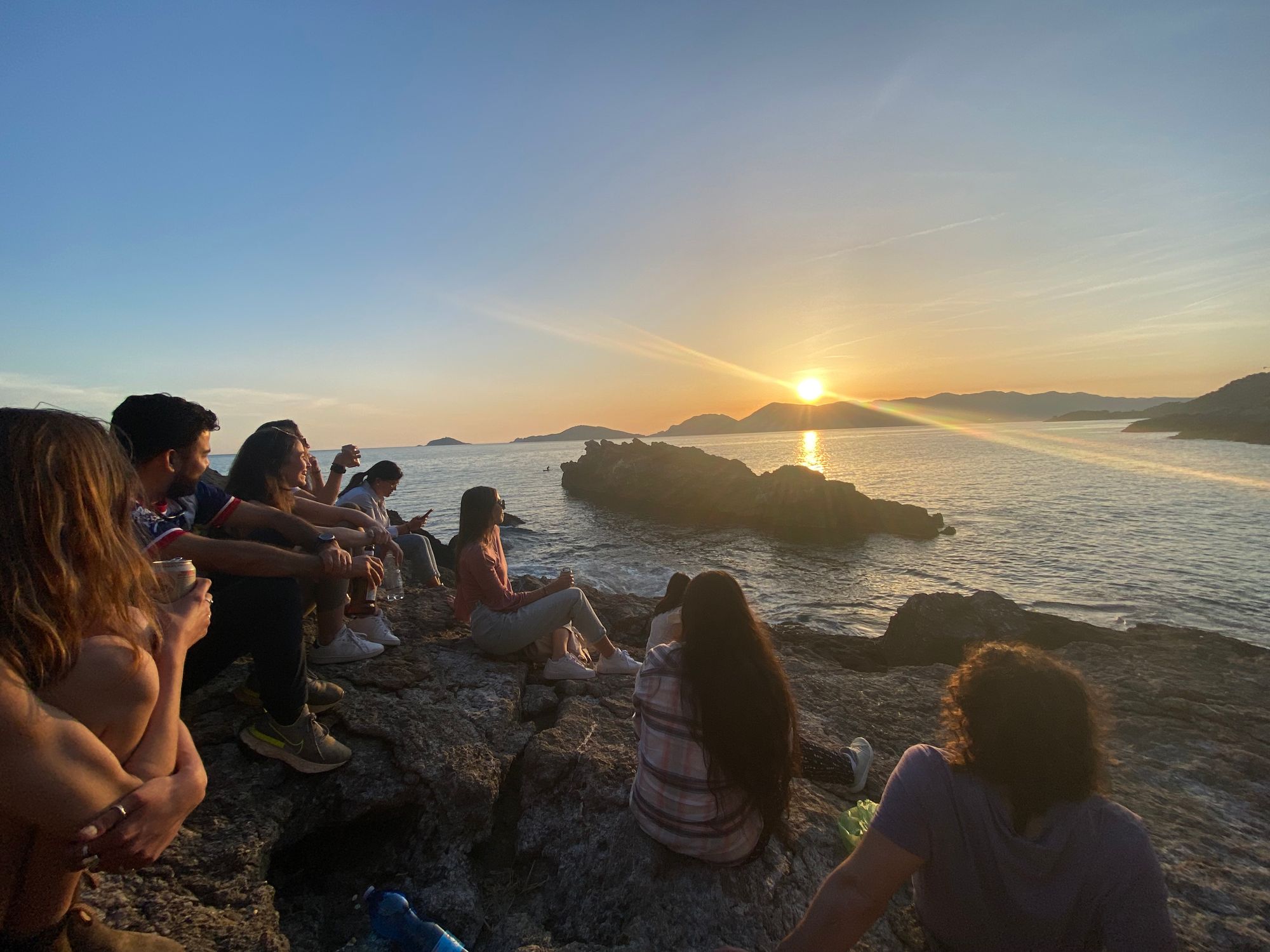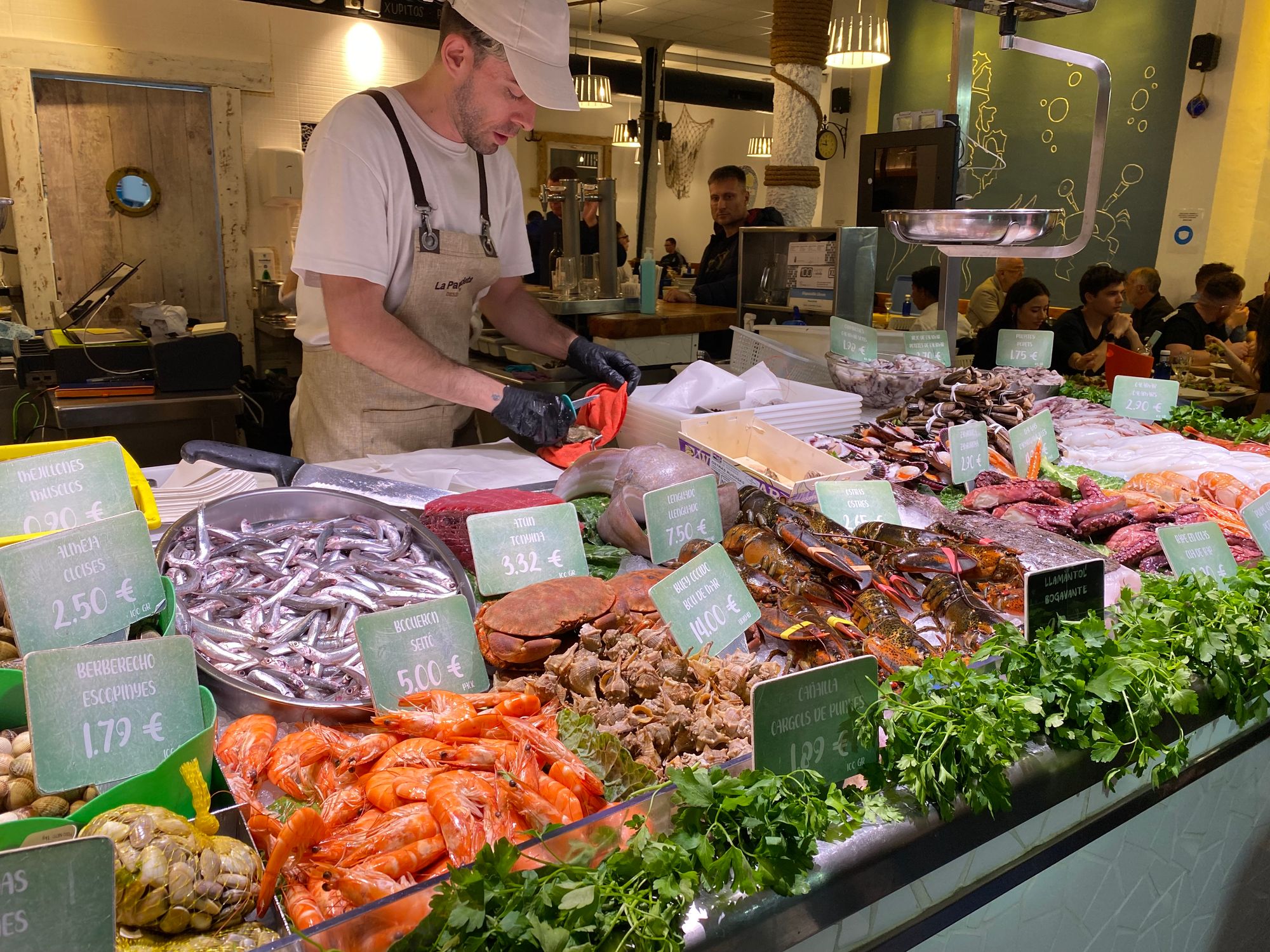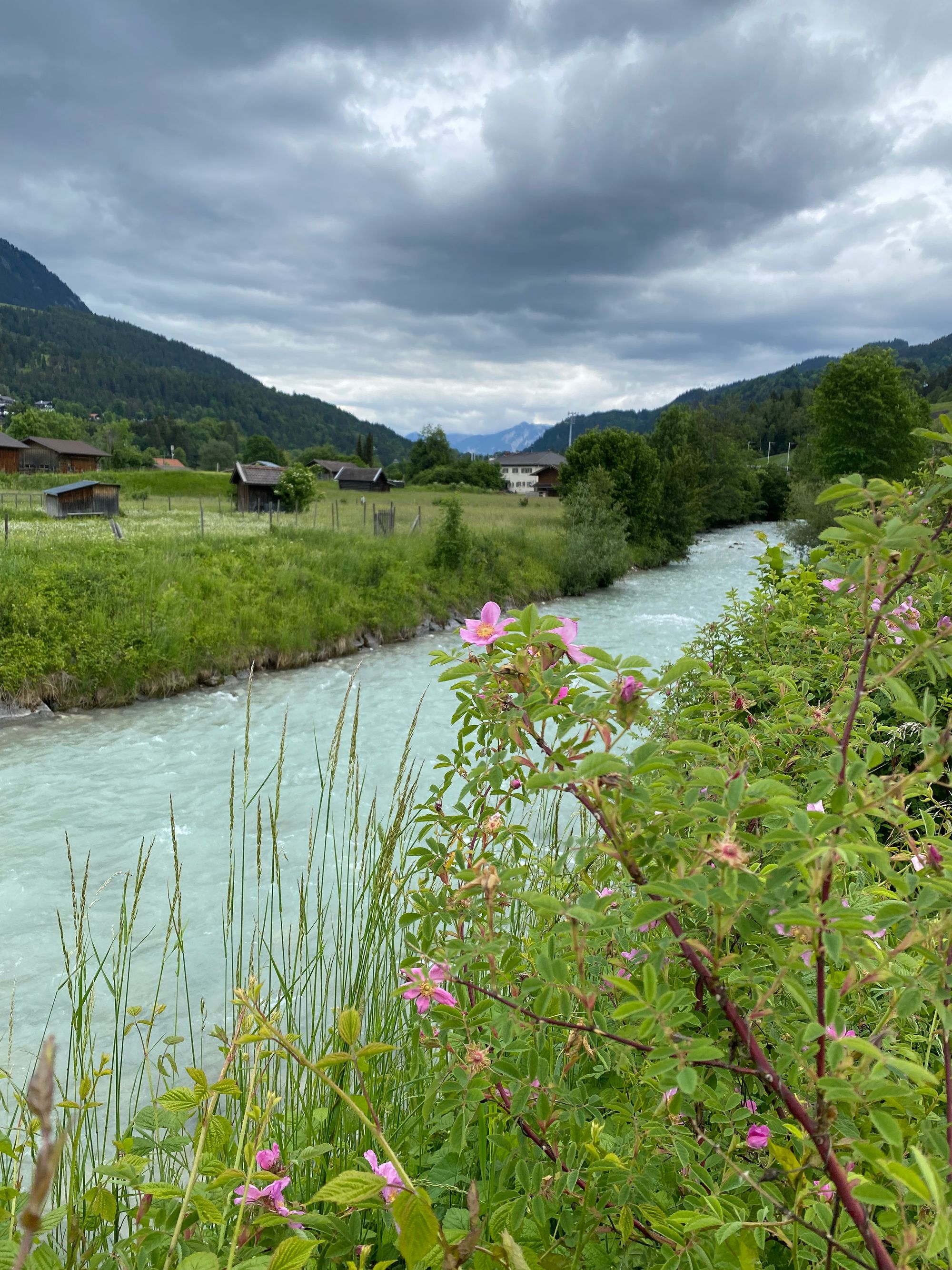#BigSummerEnergy Series: What Does it Mean to Travel Responsibly?
Leave a small footprint and a positive impact on your summer travels. Our guide to responsible tourism.

The #BigSummerEnergy series aims to examine the aspects we love about summer under the lens of sustainability. We're asking questions around how to travel, relax, and enjoy while being mindful of our environmental and social impact. Our current system is not sustainably set up, so for now – it takes a little extra curiosity to sort through the info out there to make the best choices.
There are lots of reasons to travel, and as the name suggests, Travel Under the Radar, believes that the best type of travel is under the radar. That means, out of the way of massive travel destinations, in a way that leaves as little trace as possible, and that gives you - the reader - a long lasting experience.
When we think of travel planning, these activities might come to mind: a hectic day at the airport, eating fast food at a rest stop, and visiting a congested tourist site. These are big ticket items that are bad for the environment, unhealthy choices for ourselves, and put pressure on fragile historic sites. Yet, these are also often unavoidable choices for traveling.
So, as lovers of travel, we want to ensure that the trade off for airplane emissions and other negative tourism effects can be counteracted.
Enter – responsible tourism! A responsible tourist "makes better places for people to live in and better places for people to visit."
This includes: minimizing negative impact on locals and environment, minimizing negative economic impact on destination, involving local community in decisions that impact them, provide tourists with understanding of local culture and conservation of environment, and general respect.
Get inspiration: Read 41 reasons on why people love to travel
Picking Your Destination:
It's enticing to travel to a well known location, especially if making travel plans is a daunting task. But, going to an overly touristic spot can be unnecessarily expensive, and so crowded that it's hard to enjoy, leaving you with an inauthentic experience and understanding of the place you chose to visit.
We believe in seeking alternatives to popular destinations. Here's why:
- Over tourism - There are places so overrun with tourists that they're asking people not to visit. In 2022, Venice, Thailand, the European Union, the Maldives and Norway all imposed tourist taxes to discourage travelers, and make up for the degradation that comes with too many visitors. Not only are crowds annoying, the sheer amount of people strains local infrastructure and impedes on the lives of the local people just trying to do their days.
- Resentment from locals - Think about where you live. How you would feel if hoards of tourists were always around? Now think about how you would feel if those same people didn't eat at local restaurants, didn't acknowledge you, left garbage on your trails or beaches, and pushed your neighbors out of their apartments as short-term rentals were bought up? It would suck, right? These are just a few of the grievances that give tourists a very bad reputation.
- A real experience - And for you, the traveler, we can't assume what your expectation is or goal. If it's to relax, learn about a place, enjoy new cuisines and environments, then for sure visit a place that is quieter and welcoming.
That being said, if you're eager to visit a top travel destination, consider planning a trip during the off-season (not summer!). This helps compensate for the months when this bustling site has less economic stimulation.
Get inspiration: Natural Dyes and Weaving with Thread Caravan, Conscious Camping in the Southwest
Traveling There and Around:
Air travel contributes to massive negative environmental impact (carbon emissions). But the truth is, we're not going to stop flying. Luckily, we're not far off from air travel becoming more efficient with electric and hybrid-electric airplanes! Also, if you're thinking about a cruise ship - just don't - and we'll leave it at that.
If your destination can be reached via train or bus, that would be the most sustainable way to travel. If you're traveling by car, consider an electric vehicle.
Once you do arrive at your destination, make it worth the mileage and stay a while.
Consider a place where you can mostly walk while there, or a place that has public transportation. If you're interested, there are many programs to offset your carbon footprint, and more and more, we are seeing airlines be transparent and cognizant of their contribution to climate change, making small efforts to change.
Get inspiration: Everything to Know About Electric Vehicles, Travel with AWAY

Where to Stay, Eat, and Shop:
What you do while on vacation varies from place to place.
Starting with accommodation - If you're feeling both social and thrifty - consider hostels, home stays, couch surfing, or camping. All of these choices are more sustainable in the sense that they're often equip with communal spaces, are supportive of the local community, and emphasize leaving no trace.
Then there are short-term rentals like AirBnBs and hotels, guesthouses and motels. When you're choosing a place to stay, try to choose a locally owned and operated hotel or an individual AirBnB host versus a corporate or foreign owned hospitality group. That being said, it's hard to spot the difference.
The best way to figure out whether your hotel is local or franchised (think Holiday Inn Express), is by going to their website and reading about the accommodation.
Eating and shopping - A nice rule of thumb when on holiday is if you've never heard of the restaurant or shop name, there's a good chance it's a local business. But, if you've traveled on a plane just to drink Starbucks (guilty - but it's because I use their bathrooms and WiFi), eat at McDonalds, or shop at Zara - I encourage you to try new places!
It's important to support the local operations where you're visiting. This helps keep their businesses running beyond tourist season, supports the local economy and community, and gives you a unique experience.
Especially in summer, try to eat what is in season. If you're by the water, see what fresh fish is available. If you're getting food to cook, stop by a farmers market or small grocery store to buy in season produce. If you're looking for wine and beer, see what breweries and vineyards are nearby. Choose fresh products that don't travel far to get to you. If you're looking for a souvenir, support a local maker or artisan instead of buying low-quality mass produced items (think about something you'll keep for a long time as oppose to throw out when it quickly breaks).
If you're not sure how to find a local place: ask someone there for recommendations. You can also look at the local paper, the tourism board for that city or region, or use a review site like TripAdvisor!
Get inspiration: Accessible Vegan Wines, Immigrant-Owned Korean Food in Upstate NY, Textiles in Jaipur, India, Ethical Marketplaces with The Canvas, Makers in Minneapolis
What Activities To Do:
As you spend your time, do so with respect to the people, animals and environment around you. If you see a cool animal, let it be - even if it would make for a popular Instagram photo. If you want to go off of the nature trail, do so with a light foot so not to disrupt the ecosystem around you. And if you want to demonstrate respect to the culture around you - be considerate of the clothes you wear, and your behavior (ie: ask before taking a photo, try not to be too loud, throw your trash away).
Not sure what's acceptable behavior? Do a little research before you travel, or ask when you're there. It's okay to be you! But if you're not sure what to do, the best thing you can do is ask.
All that being said, get out there! Take a cooking class, book a local tour guide, enjoy the markets, food, nature, cityscape, or solitude. If you enjoyed your experience, help these local businesses by writing good reviews. Now you can give recommendations to future travelers.
Get inspiration: Canoeing Katmai National Park, Travel Responsibly with Thread Caravan, Avoid Crowds in the Grand Canyon by Jesse Weber
Leave a Small Footprint and a Positive Impact:
In the spirit of #BigSummerEnergy, we want you to love summer and happily travel. Our intention is not to make you overthink every choice you make. We know that the sustainable option is not always the easiest, most affordable or obvious choice. But, just like our normal lives outside of summer travel, being a responsible tourist is a lot like being a responsible human.
You can relax and enjoy your time fully while being considerate to the space and people around you. Take shorter showers, reuse your hotel linens and towels, turn your lights and air conditioning off when you're not in the room, walk where possible, bring a reusable water bottle, refill your toiletries from home, dispose of your trash, support independent and locally run businesses, avoid animal exploitation and voluntourism. Leave a small footprint and a positive impact!
Our take >> We know everyone has different priorities and purchasing power. All we want to do is provide information to think about as you enjoy the long summer days! The best way to travel, be it locally or abroad, is with compassion, curiosity and an open mind.


